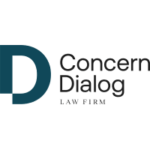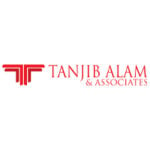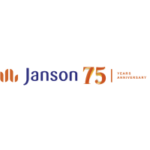-
What are the main methods of resolving disputes in your jurisdiction?
The main methods of resolving disputes in Lebanon are litigation and arbitration. The legal landscape in Lebanon is evolving positively towards encouraging recourse to arbitration and other ADR mechanisms. ADR is well received in Lebanon, with arbitration, conciliation and mediation being the most common method.
Lebanon is an arbitration-friendly jurisdiction. Its arbitration legislation is modern, based on French arbitration law, and embraces well-established principles of international arbitration. The Lebanese courts are also familiar with and generally supportive of the laws and practices of international arbitration.
Mediation has been recently endorsed through the enactment of two distinct mediation laws, Law No. 82 regarding judicial mediation which was enacted on 18 October 2018, and Law No. 286 regarding conventional mediation, which entered into force on 12 April 2022. To date, litigation is the preferred method for individuals and small to large corporations, as well as arbitration (in commercial disputes) for medium to large corporations.
-
What are the main procedural rules governing litigation in your jurisdiction?
Litigation is governed by the rules of the Lebanese Code of Civil Procedure (the “LCCP”), enacted by Decree-Law No. 90/1983 (as amended). Generally speaking, the procedure is inquisitorial in nature and the legal process is conducted primarily through written submissions.
-
What is the structure and organisation of local courts dealing with claims in your jurisdiction? What is the final court of appeal?
Lebanon has a civil law legal system, so follows the inquisitorial model. The legal process is conducted primarily through written submissions.
Court System
As it is a unitary state, there are no federal courts in Lebanon. The courts in Lebanon are divided into two parts:
- judicial courts (those dealing with criminal and civil laws); and
- courts dealing with administrative matters.
The Council of State is currently the sole judicial body dealing with administrative disputes. Lower-level administrative courts have not yet been established.
There are also special courts with subject matter jurisdiction, such as the military court and the religious courts.
Civil Court Chambers and Divisions
The civil courts are in charge of adjudicating civil disputes. They are divided into chambers, depending on the nature of the dispute, as follows:
- the Commercial Chamber is competent in determining/adjudicating commercial and financial disputes between corporate entities;
- the Financial Chamber is competent in determining/adjudicating financial disputes between individuals; and
- the Personal Statute Chamber is in charge of determining/adjudicating matters relating to nationality, inheritance, matrimonial issues, etc.
In addition to the above, there are special chambers that deal with lease issues, real estate issues, labour law and bankruptcy matters. There are also courts with a sole judge for summary proceedings, and an Enforcement Bureau that deals with enforcement proceedings.
The civil courts are divided as follows:
- courts of first instance, which are presided over by a single judge or a panel of three judges, and are in charge of examining civil law claims – the sole judge usually examines specific matters such as leases and claims of a lesser value than the ones examined by a panel of three judges;
- courts of appeal, which are based in the administrative centre of each district (Mouhafazat) and are mandated to serve as a second-degree court reviewing the decisions of lower courts (ie, the courts of first instance); and
- the Court of Cassation, which is a court of law as opposed to a court of fact, and serves as the ultimate judicial recourse.
-
How long does it typically take from commencing proceedings to get to trial in your jurisdiction?
The timeframe is affected by various factors such as subject-matter and complexity (e.g. the need to appoint an expert), as well as other factors which may or may not be within the parties’ control. Generally, the time between commencing proceedings and getting to trial ranges between 2 and 6 months in normal circumstances and if notification is not delayed. However, in recent years, the time to reach trial has often been prolonged due to the ongoing situation in Lebanon, with factors such as strikes and other disruptions contributing to the delays.
-
Are hearings held in public and are documents filed at court available to the public in your jurisdiction? Are there any exceptions?
According to Article 484 of the LCCP, civil hearings are held publicly by default. However, the court may decide, either on its own initiative or upon the request of a party, to hold a hearing in private if necessary to protect public policy or safeguard family privacy. However, even when hearings are held in private, final judgments will still be publicly announced.
TV cameras and photographers are not permitted in court.
In Lebanon, filings submitted in civil cases are generally accessible to the public.
-
What, if any, are the relevant limitation periods in your jurisdiction?
The statutes of limitation in civil suits are regulated by the Lebanese Code of Obligations and Contracts (COC). Generally, the statute of limitation in civil matters is ten years (Article 349 of the COC). However, statutes of limitations of shorter duration apply in some specific types of disputes (Articles 350 to 352 of the COC).
The statute of limitation runs from the maturity date of the obligation, and can be invoked before the courts by a party.
Articles 354 to 359 of the COC outline the circumstances in which the statute of limitations can be either suspended or interrupted. For completeness, suspension pauses the running of the statute of limitation without resetting the elapsed time. In contrast, interruption not only halts the statute of limitation but also resets the elapsed time, starting a new period from the point of interruption.
Furthermore, Article 509 of the LCCP allows the parties to request that the lawsuit be dropped if the proceedings remain inactive for a period of two years, starting from the date of the last valid procedural step. The same decision may be taken by the court, without a request from any party, if the proceedings remain inactive for a period of five years (Article 512 (2) of the LCCP).
-
What, if any, are the pre-action conduct requirements in your jurisdiction and what, if any, are the consequences of non-compliance?
The LCCP and the courts do not impose any rules on the parties in relation to pre-action conduct, per se. However, a notice is usually sent to the defaulting party to remedy the breach before initiating proceedings. The notice in some instances is mandatory and usually provides a time limit for the defendant to reply and remedy the breach before the plaintiff commences judicial proceedings.
It should be noted that, in civil matters, the creditor may be exempted from sending such notice – i.e., when the performance of the obligation becomes impossible, when the obligation involves returning stolen or illicitly acquired property, or when the obligation’s term has expired, especially if the term was set, at least partly, in the debtor’s interest (Article 258 of the COC).
-
How are proceedings commenced in your jurisdiction? Is service necessary and, if so, is this done by the court (or its agent) or by the parties?
Proceedings in civil and commercial matters are commenced by filing a submission before the clerk of the relevant court. The plaintiff must have the requisite legal standing to sue/file a claim (Article 9 of the LCCP). The plaintiff should have the requisite locus standi to file a claim (Article 9 of the LCCP).
The initial summons should be filed before the competent court and should include the following information (Article 445 of the LCCP):
- the name of the court before which the claim is filed;
- the full names, occupations, and domiciles of the parties and their legal representatives, if any. For legal entities, it should also state the entity’s legal form, name, business address, and legal representative. If a lawyer is appointed, their details must be provided along with a copy of the power of attorney;
- the facts, legal grounds, evidence and relief sought;
- the date of the summons;
- the plaintiff’s signature or the signature of their legal representative. A copy of the power of attorney must be attached; and
- the exhibits enclosed with the summons.
Pursuant to Article 365 of the LCCP, the subject matter of the dispute is specified in the parties’ requests for relief as stated in the initial summons and the subsequent submissions.
Pursuant to Article 31 of the LCCP, the plaintiff may file incidental requests intended to correct the initial summons, or to complete it or amend its subject matter or its purpose. In the same context, Article 32 of the LCCP grants the defendant the right to file incidental requests, such as set-off requests or claims for damages incurred as a result of filing the initial complaint or a procedure of the trial.
It is important to note that the above-mentioned incidental requests should satisfy the requirements of Article 30 of the LCCP. Specifically, incidental claims must correlate with the initial claims set out in the initial complaint, fall within the jurisdiction of the court handling the initial complaint, and not be subject to the jurisdiction of an arbitral tribunal. Service is necessary, except where the law explicitly allows for ex parte proceedings. Rules of service are provided for under Articles 397 et seq. of the LCCP. Typically, notification is served by a bailiff. It may also be carried out via the police, the interior security forces or a court clerk.
A party located outside the jurisdiction may still be served with process. In this respect, Article 413 of the LCCP requires that notification be made via a registered letter with acknowledgement of receipt.. Notification may also be made through the Lebanese embassy or consulate located in the country where notification is sought, or in accordance with the latter’s local law.
-
How does the court determine whether it has jurisdiction over a claim in your jurisdiction?
Under Lebanese law, jurisdiction is determined according to four principal categories, as outlined in Article 72 of the LCCP:
- International jurisdiction (Articles 74-80 of the LCCP) – determines which country’s courts have the authority to adjudicate a legal matter. This jurisdiction is established by considering factors such as the nationalities of the parties involved or the location of the disputed interests.
- Functional jurisdiction (Articles 81-82 of the LCCP) – assigns cases to judicial bodies determining the competent court to be either civil, administrative or religious.
- Subject-matter jurisdiction, or ratione materiae jurisdiction (Articles 83-95 of the LCCP) – determines the competent court based on the nature of the dispute. This jurisdiction establishes not only the appropriate level of court – whether first instance, appellate, or the Court of Cassation – but also, in certain cases specified by law, the specialised courts designated to handle specific types of disputes. These specialised courts may address matters such as summary proceedings, labour arbitration, and other specific disputes.
- Territorial jurisdiction (Articles 96-113 of the LCCP) – focuses on the allocation of cases among courts of the same type and level, identifying which specific court is competent to hear a dispute based on the geographic location of the subject matter or the parties involved. Territorial jurisdiction can be either ordinary, which is relative and allows flexibility in determining the competent court, or exceptional, in which case it is becomes mandatory.
Typically, the competent court is determined by the defendant’s domicile, as specified in Article 97 of the LCCP, but may also vary depending on the type of dispute as outlined in the subsequent provisions of the LCCP:
- Real estate disputes: the court where the property is located (Article 98).
- Contractual disputes: jurisdiction may lie with the court where (a) the defendant’s effective domicile is located, (b) the defendant chose a domicile, (c) the contract was concluded or substantially performed, or(d) the contract was fully executed (Article 100).
- Legal entities: the court where the entity’s registered office is located, or, in the case of a branch dispute, where the branch is situated (Article 101).
- Tort claims: the court where the harmful act occurred or where the damage was sustained, or where the defendant resides (Article 102).
Some types of territorial jurisdiction are mandatory, meaning the case must be filed in a specific court, including:
- Bankruptcy claims: the court that issued the bankruptcy order (Article 108).
- Life insurance claims: the court where the insured resides (Article 109).
- Accident insurance claims: the court where the accident occurred or where the insured resides (Article 110).
- Fire insurance claims: the court where the fire occurred (Article 111).
- Special courts: where the law requires the case to be filed before a designated court (Article 112).
In criminal matters, proceedings must be brought before the court where the crime was committed, where the defendant resides, or where the defendant was arrested in accordance with Article 9 of the Lebanese Criminal Procedure Code.
-
How does the court determine which law governs the claims in your jurisdiction?
For contracts, the parties are granted the liberty of determining which law applies to their contract, subject to mandatory provisions of public policy of Lebanese law. Absent a determination by the parties, the courts apply the law where the contract was to be performed in its entirety or the law where the contract was concluded and where a main obligation under the contract should have been performed.
More generally, without any foreign element in a dispute presented before the Lebanese courts (e.g. no foreign nationality of one of the parties, no foreign place of performance of a legal act – which is an act of will with the intention of creating legal effects –, etc.), the courts would directly apply Lebanese law. When a dispute with a foreign element is presented before the courts, the principle of personality is applied in some cases (i.e., the courts apply the law of the country whose national is at the centre of the dispute) and the principle of territoriality is applied in others (i.e. the courts apply the law of the country of the location of the asset/facts object of the dispute). In family law matters, the principle of personality applies, such that the courts would apply the law of the country whose national is at the centre of the dispute. In real estate matters, the principle of territoriality applies, such that the courts would apply the law of the location of the real property. In this context, Article 142 LCCP states that if the party bringing the claim governed by a foreign law fails to bring proof of the content of that law, then the courts shall apply the Lebanese law to the claim.
-
In what circumstances, if any, can claims be disposed of without a full trial in your jurisdiction?
Law No. 154 dated 17/08/2011 introduced into the LCCP a chapter on “the summary procedure”, containing Articles 500-bis-1 to 500-bis-9 governing proceedings where claims on the merits may be disposed of without a full trial. Pursuant to Article 500-bis-1 LCCP, claims relating to persons or relating to an asset, whether movable or immovable, the value of which does not exceed 30 times the minimum wage, are subject to the summary proceedings rules. Pursuant to Articles 500-bis-2 and 500-bis-3, there is only one round of exchange of submissions with shortened time periods, following which, pursuant to Article 500-bis-4, the judge must issue a decision within 2 weeks of the last submission. Also, outside of the above case, by agreement of the parties, they may submit to the court a request to shorten the statutory deadlines for the exchange of submissions in view of expediting the litigation.
Two main types of defences that can be raised to strike out a case before addressing the substance.
- Procedural defences (exception de procédure) to dismiss the case at a preliminary stage before addressing the merits of the case are available under Lebanese law. They include grounds such as lack of jurisdiction, lis pendens or the connectivity of the claims, the nullity of the summons or other procedural acts, a request for an extension of time, the transfer of the lawsuit due to legitimate doubts or the existence of a family relationship (Articles 52–68 of the LCCP). These procedural defences must be raised at the outset of the trial, prior to any discussion of the merits of the case or any inadmissibility defence, unless the grounds for the procedural defence arise later on in the proceedings.
- Defences of inadmissibility (fins de non-recevoir) whose aim is to declare the other party’s claim inadmissible, without addressing its merits, due to an alleged absence of the right to bring the case. The defences of inadmissibility include lack of standing, lack of interest, res judicata, or the expiration of procedural deadlines. The defence of prescription (statute of limitations) is also considered a defence of inadmissibility (Articles 62-65 of the LCCP). These defences can be raised at any stage of the proceedings, either upon the request of a party, or by the court if the defence relates to public policy.
-
What, if any, are the main types of interim remedies available in your jurisdiction?
The trial judge and the judge of summary proceedings can order provisional and conservatory measures for the protection of rights and the prevention of harm, such as affixing seals, setting an asset’s inventory, ordering the sequestration or selling of perishable assets and describing the status quo of a situation (Article 589 of the LCCP) upon the request of any of the parties, either in consideration of a guarantee or without it.
The petitioner has to show that its rights are in danger of imminent harm that necessitates interim relief as a matter of urgency in order to protect its rights.
As mentioned in Question 11 above, there are two types of defences that can be raised to strike out a case before addressing the substance (i.e., procedural defences and defences of inadmissibility).
-
After a claim has been commenced, what written documents must (or can) the parties submit in your jurisdiction? What is the usual timetable?
In Lebanon, the litigation process is conducted primarily through written submissions.
After a claim has been commenced (i.e. an initial submission/statement of claim has been filed by the plaintiff), a defendant has 15 days to file his answer submission/statement of defence along with all supporting documents (Article 449 of the LCCP).
Following notification of the statement of defence to the plaintiff, the plaintiff has 10 days to file a reply submission (Article 452 of the LCCP). Following notification of the reply submission to the defendant, the defendant in turn has 10 days to file a rejoinder submission (Article 452 of the LCCP). This would conclude the normal exchange process.
Article 453 of the LCCP states that upon the expiration of these time limits, neither party may submit further responses unless they provide an acceptable excuse or reason, in which case the court president or sole judge will set new deadlines. Also, Article 455 of the LCCP allows the court to expedite time limits in urgent cases, provided that the time limit it sets is not less than twenty-four hours. In other cases, it may extend them upon request if justifiable. Decisions regarding time limit adjustments are made in court chambers. The same process applies to counterclaims, commencing with the statement of counterclaim. Typically, after the conclusion of the pleadings, the judge declares the trial closed and sets a date for issuing the judgment within a period not exceeding six weeks.
In addition to the above, each party may submit a written memorandum within one week after the trial concludes to clarify or elaborate on points raised in their pleadings (499 of the LCCP).
That said, the proceedings before the court of first instance vary between three months and four years, depending on the complexity of the case. It should be noted that some delays have occurred over the past three years due to a confluence of factors. These include court suspensions during the pandemic, the ongoing Lebanese crisis, and disruptions to court operations.
-
What, if any, are the rules for disclosure of documents in your jurisdiction? Are there any exceptions (e.g. on grounds of privilege, confidentiality or public interest)?
According to Article 203 LCCP, a party may request the opponent to produce any document essential for the outcome of the dispute, provided that: the law allows the party to request such document production or deliverance; if the document is common between the requesting party and the opponent. The document is considered common if it is drafted in the interest of both parties, or evidences their mutual rights and obligations; or if the opponent relied on the document at any time during the proceedings.
There are no particular rules in the LCCP with respect to disallowing disclosure of a document. This is usually subject to specific rules or regulations with respect to disclosure of documents, such as bank secrecy laws, professional regulations privacy protection, etc.
Pursuant to Article 205 of the LCCP, if a party substantiates its request or the opposing party admits possession of the document, or remains silent, the court shall order the document to be produced either immediately or within a specified timeframe.
However, if the opposing party denies possession and the requesting party fails to provide sufficient evidence to support its claims, the opposing party must assert under oath that the disputed document either does not exist, that they are unaware of its existence or whereabouts, or that they have not concealed it nor been negligent in searching for it.
-
How is witness evidence dealt with in your jurisdiction (and in particular, do witnesses give oral and/or written evidence and what, if any, are the rules on cross-examination)? Are depositions permitted?
Witness evidence is governed by Articles 254 to 298 of the LCCP. Article 254 of the LCCP provides that witness testimony is inadmissible to establish the existence of contracts or other legal acts exceeding LBP 25,000,000, or those of indeterminate value. It also prohibits the use of witness evidence to contradict or supplement the terms of a written instrument, even if the value of the dispute does not exceed LBP 25,000,000.
Witnesses, when permitted, provide verbal testimony, following the swearing of an oath of truth. Certain people are disqualified from acting as witnesses, this includes specific relatives in family-related litigation (parents, grandparents, children, grandchildren, spouses, even after divorce), agents to their principals, and partners and shareholder in matters involving their respective companies (Article 260 of the LCCP).
The judge oversees the proper conduct of the proceedings and actively conducts witness examinations. There is no formal cross-examination per se; instead, the opposing party, who cannot address the witness directly, may submit questions for the judge to ask the witness. Depositions are not permitted in Lebanon.
-
Is expert evidence permitted in your jurisdiction? If so, how is it dealt with (and in particular, are experts appointed by the court or the parties, and what duties do they owe)?
Expert evidence is usually given in the context of courtappointed experts. According to Article 313 LCCP, the court may designate an expert to contribute expertise, submit technical advice or to undertake a technical investigation for a specific matter.
Depending on the circumstances of the case, there is nothing preventing a party from submitting expert reports/opinions, which would be treated as documentary evidence.
As for the expert’s duties, these are defined by the court’s decision of appointment in the case of court-appointed experts, or by the engaging party when the expert is privately retained. In either case, the expert is expected to act independently and impartially and to limit their opinion to the scope of the technical issues assigned.
-
Can final and interim decisions be appealed in your jurisdiction? If so, to which court(s) and within what timescale?
Article 639 of the LCCP provides that all decisions issued by the Court of First Instance may be subject to appeal save for those that are excluded by the law. According to Article 640 of the LCCP, decisions in disputes under LBP 150 million cannot be appealed (except on limited grounds set out in Article 641 of the LCCP, such as lack of jurisdiction ratione materiae). However, decisions issued by the Labour Arbitral Council are not subject to appeal before the courts of appeal but only to a challenge by way of cassation (i.e. labour law disputes).
Unless otherwise provided by law, the timeframe to lodge an appeal, in accordance with Article 643 of the LCCP are as follows:
- eight days from receiving notification of a decision issued by the judge of summary proceedings, the President of the Enforcement Bureau, and all decisions ordering interim measures; and
- 30 days from receiving notification of the other types of decisions issued by the court of first instance.
Unless provided otherwise by virtue of a specific text, the time limit to file an appeal starts running from the day of notification of the decision (Article 643 of the LCCP). That said, the losing party may request notification of the judgment from the court clerk upon the issuance of the final judgment, and immediately file an appeal after paying the relevant fees, pursuant to Article 642 of the LCCP.
In addition, ex parte decisions and orders may be challenged by way of opposition before the judge/court who issued them (Article 601 of the LCCP).
-
What are the rules governing enforcement of foreign judgments in your jurisdiction?
Unless otherwise provided by virtue of an international convention signed between Lebanon and a foreign state, foreign judgments are recognised in Lebanon via an exequatur order, which is a pre-requisite to enforcement. To obtain an exequatur order, an application must be filed ex parte to the President of the Court of Appeal – Civil Section, having jurisdiction over:
- the defendant’s domicile;
- the defendant’s residence; or
- the assets subject to execution.
If none of the above-mentioned scenarios applies, the request shall be submitted to the President of the Beirut Court of Appeal (whose jurisdiction would, in this case, be established by default), pursuant to Article 1013 of the LCCP.
Article 1014 of the LCCP provides that exequatur is granted to a foreign judgment that satisfies the following conditions:
- The judgment should be rendered by competent judges in accordance with the laws of the country in which the decision was rendered, provided that such jurisdiction is not solely determined by the nationality of the plaintiff. If two foreign judgments are rendered in two different jurisdictions but in relation to the same subject matter and among the same parties, the Enforcement Order is granted to the judgment that is in conformity with the rules of the Lebanese law pertaining to international competence.
- The judgment should be enforceable and should have acquired the force of res judicata in the country where it was rendered. Nevertheless, the Enforcement Order can be granted to provisional and ex parte decisions that have become enforceable in the concerned country.
- The party against whom enforcement is sought should have been duly notified of the lawsuit that resulted in the judgment and the right of defence should have been duly afforded to them.
- The judgment should be rendered in the name of a country whose laws allow enforcement of Lebanese judgments on its territories after scrutinising them or after giving them an exequatur.
- The judgment does not violate public policy.
As an exception, foreign decisions related to personal status, capacity and issued ex parte, automatically produce their effects in Lebanon without the need for an exequatur, provided they are not rendered through so-called contentious proceedings abroad (Article 1012 of the LCCP).
Once the exequatur is granted, the foreign judgment becomes enforceable in Lebanon. The competent Enforcement Bureau will then proceed with its execution, in accordance with the provisions of the LCCP governing enforcement. This involves pursuing the judgment debtor’s movable and immovable assets.
-
Can the costs of litigation (e.g. court costs, as well as the parties’ costs of instructing lawyers, experts and other professionals) be recovered from the other side in your jurisdiction?
A party may request an order that the other party bear the costs of the litigation. In principle, a judge would grant the successful party its request and order the losing party bears the costs of the successful party. The recoverable costs include the judicial fees, costs and expenses the successful party paid in order to file and plead its claim. In practice, lawyers’ fees are not granted by the court.
-
What, if any, are the collective redress (e.g. class action) mechanisms in your jurisdiction?
Class actions are not available under Lebanese Law. However, certain associations and unions may bring actions for the defence of the collective interests of their members. For instance, trade unions and professional organisations whose members are engaged in collective labour contracts are entitled to institute legal proceedings concerning such agreement on behalf of their members. No proxy from the members is needed in this regard, provided that the latter have been notified of the matter and have not objected (Article 24 of the Collective Agreements, Mediation and Arbitration Law, enacted by Decree 17386/1964).
Interested parties may intervene or be joined to a lawsuit if the requirements are fulfilled (see below). In labour disputes, there are special provisions in the Lebanese labour law governing collective labour contracts. A joint action by all employee parties to such a contract is possible in certain circumstances. In insolvency/bankruptcy proceedings, all creditors can be joined into the proceeding.
-
What, if any, are the mechanisms for joining third parties to ongoing proceedings and/or consolidating two sets of proceedings in your jurisdiction?
The involvement of third parties in proceedings is regulated by Articles 36 et seq of the LCCP. Pursuant to Article 36 of the LCCP, a third party can intervene in the trial proceedings and become a party upon the submission of a reasoned request before the court. The court shall rule on such request and authorise a third party to join a lawsuit.
In the same context, Article 38 of the LCCP provides that any party in the trial may request the joinder of a third party to hear the judgment, or to condemn it with respect to claims similar to those of one of the parties, or for warranty purposes.
However, the failure to join a particular party does not preclude a litigant third party from bringing the same or similar claims against that party. The intervening party or the party to be joined must have a personal and legitimate legal interest in the action (Article 40 LCCP).
-
Are third parties allowed to fund litigation in your jurisdiction? If so, are there any restrictions on this and can third party funders be made liable for the costs incurred by the other side?
The law does not address this issue. To the best of our knowledge, there have been no lawsuits in Lebanon involving third-party litigation funders.
-
What has been the impact of the COVID-19 pandemic on litigation in your jurisdiction?
The COVID-19 pandemic did not stop the operation of the courts which remained operational on an intermittent basis with a system of rotation between judges, court officers and employees. The courts remained operational regarding urgent requests in summary proceedings and criminal matters. Some courts also resorted to virtual hearing to ensure the continuity of the work. Still, the parliament issued a series of laws suspending legal, judicial and contractual deadlines for various time periods between October 2019 and March 2021. Procedural delays naturally ensued.
-
What is the main advantage and the main disadvantage of litigating international commercial disputes in your jurisdiction?
One important advantage of litigating international commercial disputes in Lebanon is the possibility to provisionally seize/attach assets of the defendant even before (or without) a final judgment being issued in the plaintiff’s favour. This grants the applicant a means of pressure which is not frequently available in the same circumstances elsewhere. In some circumstances, such a provisional seizure may be available ex parte on the basis of a probability of success in a main action on the merits. Such considerations may convince international litigants to consider Lebanon as a forum for their litigation, although it is even possible to obtain such seizure locally in support of foreign proceedings. One important disadvantage in the prevailing circumstances was the delay that the proceedings may face due to domestic unrest. Delay is not a unique to Lebanon, but it may be augmented depending on the circumstances prevailing at the time of filing a claim.
-
What is the most likely growth area for commercial disputes in your jurisdiction for the next 5 years?
In the upcoming five years, the most probable area of dispute growth would likely centre around commercial agency contracts.
Historically, these contracts were governed by Decree-Law No. 34 of 1967 that granted Lebanese agents exclusivity and protection in relation to foreign principals or other agents in Lebanon. However, on March 17, 2022, a long-awaited competition law (the Competition Law), came into effect. This law affected certain provisions of Decree-Law No. 34 of 1967, particularly the exclusivity aspect that had been safeguarded for over 50 years.
Exclusivity remains a concept upheld under the current Lebanese legislation if the criteria outlined in Article 1(2) of Decree-Law No. 34 of 1967 are met. However, the Competition Law introduces changes regarding the enforceability of such exclusivity rights concerning third parties. Consequently, a third party cannot personally suffer adverse consequences due to the existence of an exclusivity clause or its breach, such as purchasing products from a manufacturer/principal with an exclusive distributor in Lebanon. Nevertheless, the exclusivity clause remains valid and enforceable between the contracting parties.
This has already, and will continue, in our view, to affect litigation of these types of disputes before the Lebanese courts.
In addition, the Lebanese financial crisis has given rise to another prominent area of dispute: the currency of payment, especially in agreements denominated in foreign currency. These issues are particularly prevalent in loan agreements between banks and their clients. Lebanese courts have supported both perspectives in local contracts – either requiring repayment in the agreed foreign currency or permitting payment in the national currency, even when a foreign currency clause exists.
Similar currency-related disputes may also arise between banks and foreign investors or foreign funds, where the Lebanese courts typically uphold the contractual obligation to settle payments in the designated foreign currency if the agreement is deemed an international contract.
In addition to currency-related disputes, another area of litigation has emerged concerning the insolvency of banks. With depositors facing restrictions on accessing their foreign currency accounts, some have turned to legal action by initiating insolvency proceedings against banks. Depositors argue that by failing to meet their obligations to pay demand deposits in cash or process international transfers, the banks are in a state of cessation of payment, justifying the application of insolvency laws, specifically Law No 2 of 1967, dated 16 January 1967, and its implementing Decree No 7739 dated 3 July 1967 on Bankruptcy (Law No 2/67).
Despite these claims, recent court decisions have consistently dismissed insolvency declarations against Lebanese banks stating that declaring a Lebanese bank insolvent during the financial crisis could trigger a series of insolvencies across the banking sector, undermining public credit and further destabilising the national economy.
Nonetheless, the possibility of bank insolvency cannot be ruled out, and many claims are being brought forth in this regard.
-
What, if any, will be the impact of technology on commercial litigation in your jurisdiction in the next 5 years?
The integration of technology into commercial litigation in Lebanon would significantly transform the judicial process, but this will require proactive legislative reforms, particularly amendments to the LCCP, which currently does not accommodate modern technological developments.
Technology holds great potential to enhance efficiency, especially in urgent civil and commercial matters, by enabling faster case management, remote hearings, and digital submissions. In criminal courts, technology could facilitate proceedings in situations where physical presence or traditional methods are impractical.
Notably, Law No. 81 of 2018 on electronic transactions and personal data recognition marks an important step forward by granting electronic documents and signatures the same legal validity and evidential weight as their paper counterparts. However, the full benefits of these advancements remain unrealized due to the absence of implementing regulations and executive decrees necessary to operationalize the law.
The adoption of enabling regulations and judicial willingness to embrace technology could lead to more streamlined, accessible, and transparent litigation processes, ultimately reducing delays and costs associated with commercial disputes.
Lebanon: Litigation
This country-specific Q&A provides an overview of Litigation laws and regulations applicable in Lebanon.
-
What are the main methods of resolving disputes in your jurisdiction?
-
What are the main procedural rules governing litigation in your jurisdiction?
-
What is the structure and organisation of local courts dealing with claims in your jurisdiction? What is the final court of appeal?
-
How long does it typically take from commencing proceedings to get to trial in your jurisdiction?
-
Are hearings held in public and are documents filed at court available to the public in your jurisdiction? Are there any exceptions?
-
What, if any, are the relevant limitation periods in your jurisdiction?
-
What, if any, are the pre-action conduct requirements in your jurisdiction and what, if any, are the consequences of non-compliance?
-
How are proceedings commenced in your jurisdiction? Is service necessary and, if so, is this done by the court (or its agent) or by the parties?
-
How does the court determine whether it has jurisdiction over a claim in your jurisdiction?
-
How does the court determine which law governs the claims in your jurisdiction?
-
In what circumstances, if any, can claims be disposed of without a full trial in your jurisdiction?
-
What, if any, are the main types of interim remedies available in your jurisdiction?
-
After a claim has been commenced, what written documents must (or can) the parties submit in your jurisdiction? What is the usual timetable?
-
What, if any, are the rules for disclosure of documents in your jurisdiction? Are there any exceptions (e.g. on grounds of privilege, confidentiality or public interest)?
-
How is witness evidence dealt with in your jurisdiction (and in particular, do witnesses give oral and/or written evidence and what, if any, are the rules on cross-examination)? Are depositions permitted?
-
Is expert evidence permitted in your jurisdiction? If so, how is it dealt with (and in particular, are experts appointed by the court or the parties, and what duties do they owe)?
-
Can final and interim decisions be appealed in your jurisdiction? If so, to which court(s) and within what timescale?
-
What are the rules governing enforcement of foreign judgments in your jurisdiction?
-
Can the costs of litigation (e.g. court costs, as well as the parties’ costs of instructing lawyers, experts and other professionals) be recovered from the other side in your jurisdiction?
-
What, if any, are the collective redress (e.g. class action) mechanisms in your jurisdiction?
-
What, if any, are the mechanisms for joining third parties to ongoing proceedings and/or consolidating two sets of proceedings in your jurisdiction?
-
Are third parties allowed to fund litigation in your jurisdiction? If so, are there any restrictions on this and can third party funders be made liable for the costs incurred by the other side?
-
What has been the impact of the COVID-19 pandemic on litigation in your jurisdiction?
-
What is the main advantage and the main disadvantage of litigating international commercial disputes in your jurisdiction?
-
What is the most likely growth area for commercial disputes in your jurisdiction for the next 5 years?
-
What, if any, will be the impact of technology on commercial litigation in your jurisdiction in the next 5 years?




























